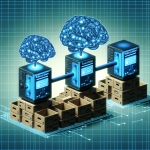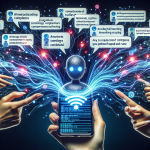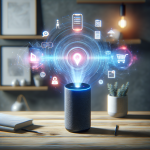Understanding the Role of AI in Marketing Funnels
Marketing funnels represent the journey customers take from the moment they first interact with a business to the point of making a purchase—and ideally, becoming loyal advocates. With the advancement of artificial intelligence (AI), marketing strategies have evolved significantly, especially in optimizing each stage of the funnel for maximum efficiency and impact.
AI augments the marketing funnel by analyzing vast amounts of customer data, delivering personalized content, automating communication, and providing actionable insights that drive decision-making. Whether it’s discovering new leads or nurturing existing ones, AI helps marketers streamline processes and boost conversion rates.
Top Funnel: AI-Powered Awareness and Attraction
At the top of the funnel (TOFU), marketers aim to generate awareness and draw in potential customers. AI enhances this stage by:
- Predictive Analytics: AI tools analyze audience behavior to forecast what content or platforms are most likely to attract engagement.
- Programmatic Advertising: AI enables real-time bidding on digital ad space, targeting the right users at the right time with precision.
- Content Generation: Natural Language Generation (NLG) tools can create SEO-optimized blogs, social posts, and ad copy to capture attention.
By leveraging AI at this stage, companies can ensure that their promotional efforts are efficiently directed at those most likely to convert.
Middle Funnel: AI for Engagement and Nurturing
The middle of the funnel (MOFU) is all about cultivating interest and converting leads into qualified prospects. AI contributes by:
- Lead Scoring: Machine learning algorithms evaluate leads based on behavior, demographics, and engagement history to prioritize the most promising ones.
- Personalization Engines: AI dynamically customizes email marketing, landing pages, and product suggestions based on user behavior and funnel position.
- Chatbots & Virtual Assistants: AI-powered bots provide instant responses to queries, guide customers through the decision process, and schedule follow-ups.
These tools help maintain momentum and trust with potential buyers, ensuring that they are efficiently guided to the next stage.
Bottom Funnel: AI in Conversion and Retention
At the bottom of the funnel (BOFU), AI focuses on converting leads into paying customers and fostering loyalty. Key applications include:
- Conversion Optimization: AI A/B testing tools automatically test website elements—such as CTAs, colors, and layouts—to maximize conversion rates.
- Sales Forecasting: AI models predict revenue and buying likelihood, allowing marketers to adjust campaigns and sales tactics proactively.
- Customer Retention Strategies: AI monitors user behavior post-purchase to identify churn risk and trigger personalized retention campaigns.
Refining the bottom of the funnel with AI leads to better ROI, higher customer lifetime value, and greater satisfaction.
Cross-Funnel Benefits: Efficiency and Insight
Perhaps one of the most compelling advantages of integrating AI into the marketing funnel is the ability to gain holistic and real-time visibility into the customer journey. AI dashboards and analytics platforms enable:
- Real-Time Reporting: Instant updates on campaign performance metrics, funnel drop-offs, and engagement rates.
- Attribution Modeling: AI helps determine which marketing channels contribute most significantly toward conversions, leading to better budget allocation.
- Continuous Improvement: Through machine learning, AI systems refine their recommendations and predictions over time, becoming increasingly effective.
Final Thoughts: Embracing AI to Future-Proof Your Funnel
As competition grows and customer expectations rise, incorporating AI into marketing funnels is no longer optional—it’s essential. Businesses that integrate AI can expect more precise targeting, higher engagement, and stronger relationships with their customers. The key is to start small, measure results, and scale AI implementations gradually across funnel stages.
With continued innovation and the growth of AI-driven tools, marketers have an unprecedented opportunity to create intelligent, agile, and high-performing funnels that keep pace with a dynamic digital landscape.





